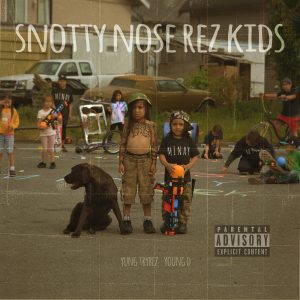Theories of Knowledge & Teaching Philosophy – Week 4
At some point in our lives we look to an adult figure in our lives and think they know everything. I remember thinking that of my grade 3 teacher Mrs. Sebastian. She knew everything and I mean everything. Math, science, languages, computers, to me she would have made millions on Jeopardy.

https://www.google.com/search?q=jeopardy&rlz=1C1GCEB_enCA955CA960&source=lnms&tbm=isch&sa=X&ved=2ahUKEwjauvCeocD6AhUUlIkEHX1lAVMQ_AUoA3oECAIQBQ&biw=1280&bih=577&dpr=1.5&safe=active&ssui=on#imgrc=f10AWOZP1JtM0M
Even if she did not know the answer, she would come back the next day an expert on whatever topic I asked about. Later in life we all realize that the people we thought knew everything do not in fact know everything. What I realized about Mrs. Sebastian and other adults in my life like her is they value learning and never stop. I would say most teachers are conditioned to the positive consequences of learning. I bet if I asked Mrs. Sebastian which theory of knowledge she subscribed to; she would say behaviourism.
I would say I most closely align with the theory of behaviourism. Ertmer and Newby state that “empiricism is the view that experience is the primary source of knowledge”. They suggest that empiricist or associationist mindsets provided the background and foundation for behaviorism. Behaviourism learning occurs through interactions with the environment. Looking back and reflecting, I think I am a lot like Mrs. Sebastian. I continually seek out experiences and opportunities to learn. Like Skinner’s rat or Pavlov’s dog, I am conditioned to learn. Hear me out. If you are like me, you hate being wrong or not knowing the answer. I do not need to be the smartest person in the room, but nothing drives me crazier than when a student asks me a question and I do not know the answer.
When I read Abhishek Solanski’s blog about Skinner’s teaching machine my immediate thought was how complex that machine would have to be to teach in today’s time. Solanski states that Skinner’s Learning machine is rooted in the modern concepts of “Adaptive Learning Systems”. He goes on to say that it is becoming impossible to individualize learners needs with traditional teaching approaches. This is the most difficult part of my job (besides the 500 hours of coaching a year). The Learning Pyramid or Cone of Learning by Edgar Dale brings up interesting debate. The article criticizes the retention percentages and I agree with the article because I feel like I am at the point where unless it is a TikTok, my students do not want to learn from it. Is it attention spans? Is it my “too traditional” teachings?
Was anyone else at the Truth and Reconciliation Event at Mosaic Stadium this week? I absolutely loved the intent behind the event, but I can barely reach the 30 students in my class for an hour, let alone a stadium with all their friends and poutine vendors. It is unfortunate to say, but most if not all my students did not learn from the event. I know they loved the performers Snotty Nose Rez Kids at the end, and no shock here they all went wild when the pair suggested they make a TikTok. “Chaos is a new reality for knowledge workers”. I am taking this quote completely out of context, but I think it holds a lot of truth. Just like Mrs. Sebastian I need to keep learning and adapting to know more, do more and be better.

https://snottynoserezkids.bandcamp.com/album/snotty-nose-rez-kids
My practice has changed significantly, but not as rapidly as it needs to be. I am only six years into my career and when I look at the materials and strategies, I use to teach outcomes they all seem flat and outdated. My beliefs are the same. I love learning and want nothing more than my students to love learning too.
“Education is not preparation for life, education is life itself.” – John Dewey.
That was the quote I used on my admissions essay, teaching philosophy, and applications to school divisions. I believe kids learn through experiences and those positive experiences make them want to continue to learn. The Learning Theory concept map is arguably one of my favourite resources to come out of my master’s program. I see myself and my teaching practices on the page. In the end I do think I am a touch hard on myself, but it has been engrained in me to want to be the best teacher, know everything, and teach in the best ways.
Anyone else relate this? I take interns to keep myself young, cool, and fresh for the kids. Let me know if you are also an empirical, lifelong learning behaviourist with perfectionism tendencies.
Awesome post, Nicole! Your comment about keeping student attention versus poutine vendors made me giggle. Am I still allowed to comment if I’m a perfectionist, lifelong learning FORMER behaviourist? Hope so! HAHA! I can definitely understand your viewpoint – I am always in awe of the Mrs. Sebastian’s of the world. After 13 years of teaching in every grade and school demographic, etc. etc. etc. I now filter through behaviourism, cognitivism, and constructivism as I deem necessary. Each style has its place in my classroom…but again, it depends on the classroom. I love your reasoning behind taking interns – I think it shows a true love for learning and adaptability – I love having them for the same reason. Thanks for such an insightful post!